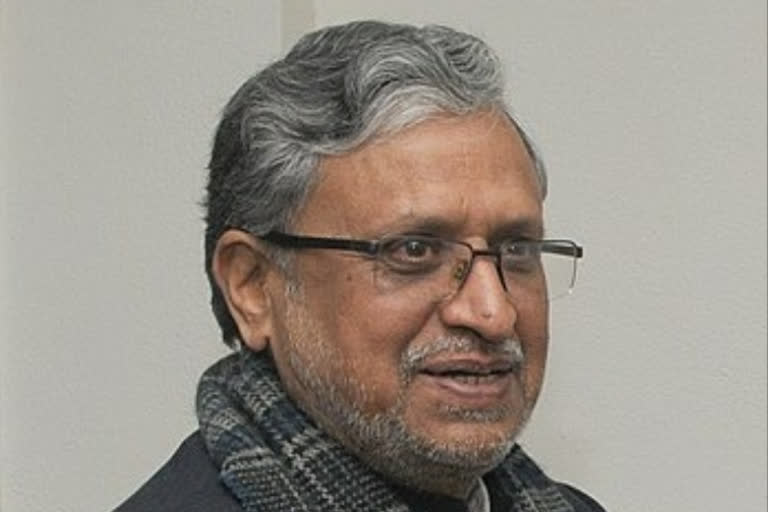New Delhi: Rajya Sabha MP and Former Deputy Chief Minister of Bihar Sushil Kumar Modi has raised an alarm on the changing pattern of Centre-State financial resources distribution that is evidently in favour of the Centre.
Speaking at a webinar organised by the Centre for Policy Research (CPR) Saturday, Modi said that states are raising concerns over shrinking share of divisible pool of taxes because of growing ‘cess and surcharge’ component.
"The share of divisible pool is slowly shrinking. .. So one of the issues which states are raising (is) because under the Constitution, cess and surcharge is not under divisible pool," said Modi, who also headed a seven-member committee that was tasked to look into revenue shortfall being faced by the states after the GST roll-out.
Modi, in his speech, pointed out that cess and surcharge which was 10.4 per cent of gross tax revenue (GTR) in 2011-12, has increased to 20.2 per cent now. Even after deducting GST compensation cess, which goes entirely to states it is above 15 per cent.
As per the Constitution of India, the divisible pool consists of taxes like income tax, excise duty and corporation tax among others, while cess and surcharges do not come under it.
Read: TVS offers free vaccination to employees, family members
The revenues in the divisible pool are shared between the Centre and States as per the recommendations of the Finance Commission of India, says the Constitution.
Earlier, in an exclusive interaction with ETV Bharat, Chairman of the 15th Finance Commission NK Singh expressed similar sentiment and clarified that the issue of Cess and surcharge is outside the ambit of the finance commission.
“The share of Cess and surcharges in the total revenue collected by the Centre has gone up significantly in last ten years, from little over 10% to over 16%, and States are right when they perceive it to be unacceptably high,” NK Singh said, while adding, “But even an increase from 10.4% to 16%, which states also rightly perceive to be unacceptably high.”
Read: Tesla launches new social engagement platform
(With PTI Inputs)



